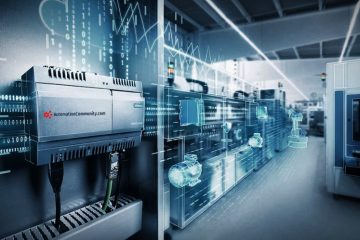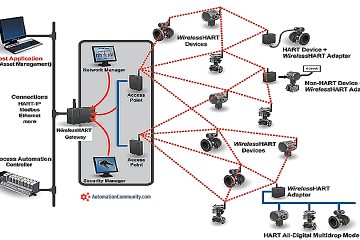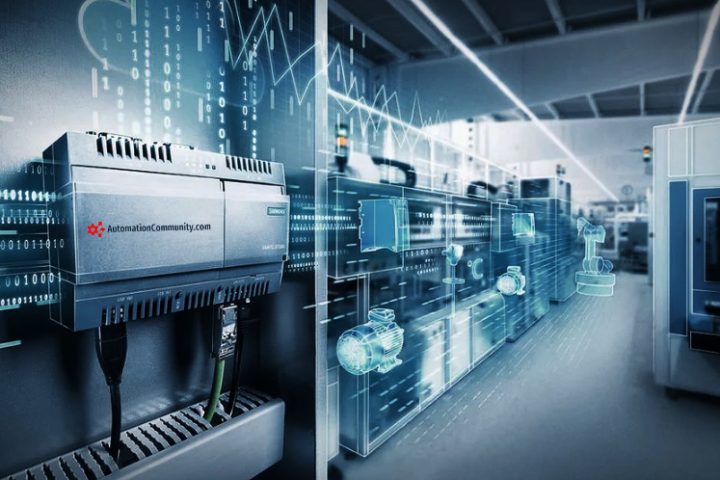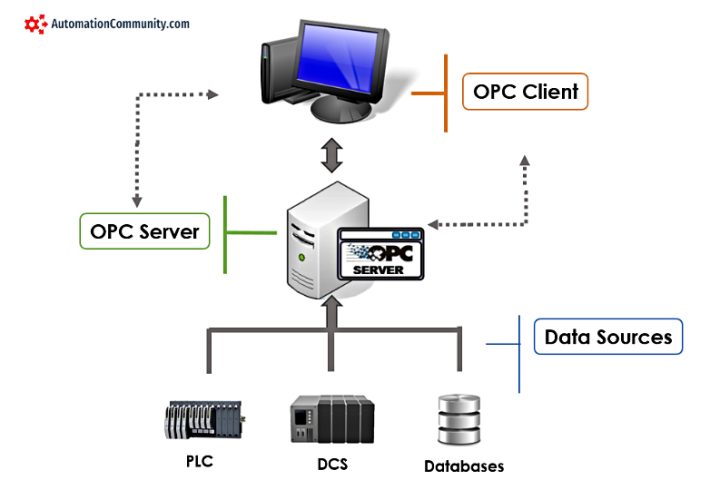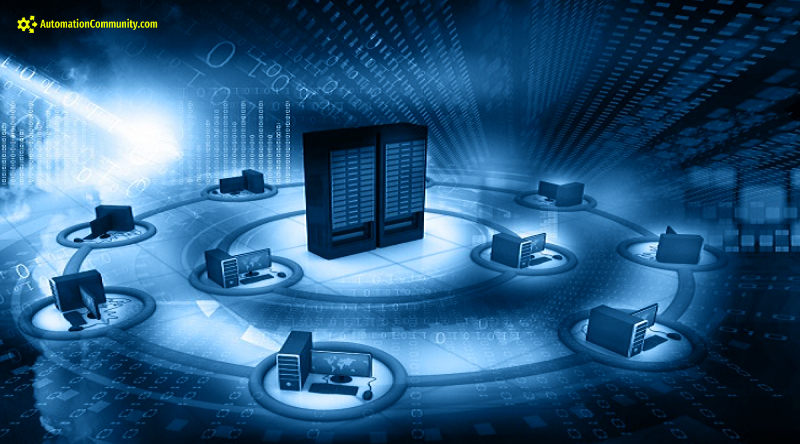Industrial Automation Engineer Interview Questions and Answers
Industrial automation has revolutionized the way industries operate by leveraging advanced technologies and control systems. By integrating sensors, actuators, controllers, and software, industrial automation streamlines processes, boosts productivity, enhances efficiency, and ensures consistent quality in manufacturing and other sectors. With its ability to deliver improved safety, reduced costs, accelerated production cycles, and overall performance enhancement, industrial automation is a vital component in the modern industrial landscape.
Industrial Automation Engineer Interview Questions and Answers
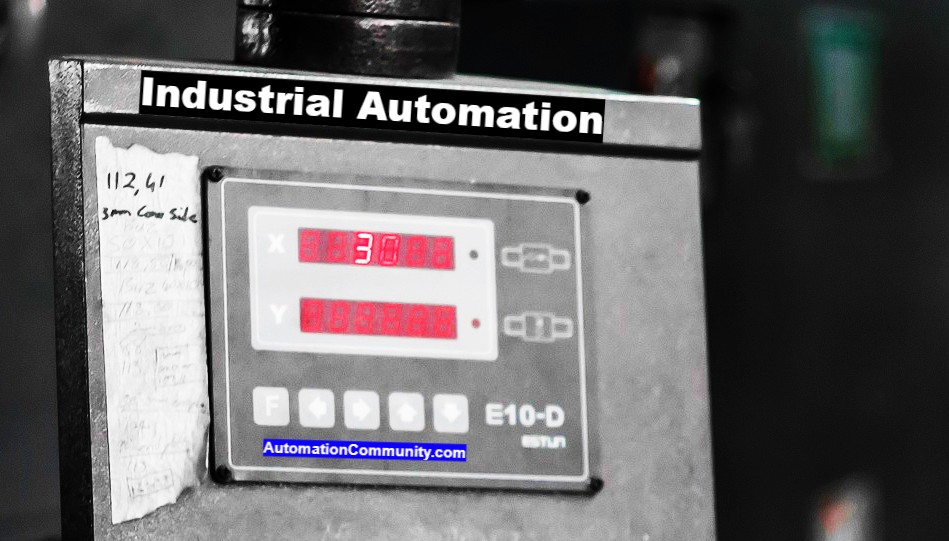
Unleash your potential in Industrial Automation Engineering interviews with our comprehensive collection of Interview Questions and Answers. Explore diverse topics such as automation technologies, control systems, programming languages, robotics, and industrial communication protocols. Elevate your interview readiness and gain valuable insights into the essential skills and knowledge required for success in the dynamic field of Industrial Automation Engineering.
Can you briefly explain what industrial automation is?
Industrial automation involves the use of control systems, such as computers or robots, and information technologies to handle different processes and machinery in an industry to replace a human being.
What are the primary benefits of industrial automation?
Industrial automation can increase productivity, improve product quality, reduce routine checks, minimize errors, and enhance safety in the workplace.
What are some common types of industrial automation systems?
Common types include Fixed or Hard Automation, Programmable Automation, and Flexible or Soft Automation. The choice depends on the applications and flexibility required.
Can you describe the difference between PLC and DCS?
A PLC (Programmable Logic Controller) is used for discrete control tasks, while a DCS (Distributed Control System) is used for large, complex continuous control processes.
What role does the SCADA system play in industrial automation?
SCADA (Supervisory Control And Data Acquisition) systems are used to monitor and control industrial processes remotely. They provide real-time data and control functionalities over large geographical areas.
Can you explain the concept of Industry 4.0 and how it relates to automation?
Industry 4.0 represents the fourth industrial revolution which is characterized by digitization, the Internet of things (IoT), cyber-physical systems, and cloud computing. It enhances automation by introducing smart and autonomous systems.
What is the role of sensors in industrial automation?
Sensors play a crucial role in industrial automation. They are used to collect data from the environment, such as temperature, pressure, or position, which can then be used to control various parameters in an industrial process.
Can you talk about your experience with programming for automation systems?
You should discuss your specific experiences.
How do you approach troubleshooting problems in an automated system?
Troubleshooting should start with identifying the symptoms, diagnosing the problem, formulating potential solutions, implementing the repair, and monitoring the system to ensure the problem is resolved.
Can you discuss the importance of safety considerations in industrial automation?
Safety is paramount in industrial automation. Automated systems should be designed and implemented with safety in mind, including emergency stop functions, safety interlocks, and protective barriers.
How do you handle the integration of different automation systems?
Integration involves ensuring the various systems can communicate effectively with each other. This might involve using standard communication protocols, middleware, or gateways.
Can you explain the term “real-time control” in automation?
Real-time control refers to the ability of an automation system to respond to changes in the process immediately or within a very short time frame.
What are the different programming languages used in automation?
Common languages include Ladder Logic, Structured Text, Function Block Diagram, and Instruction Lists. The choice depends on the system and application.
Can you describe a challenging automation project you’ve worked on and how you handled it?
You have to discuss a specific project and how you managed its challenges.
What is the significance of IoT in industrial automation?
IoT allows for greater connectivity and data sharing among devices in an industrial setup. It can enhance automation by enabling real-time monitoring and decision-making.
Can you explain the role of HMI in industrial automation?
HMI (Human-Machine Interfaces) allows operators to interact with the automation system. They can display data, receive operator inputs, and provide control over the process.
How do you handle cybersecurity concerns in industrial automation?
Cybersecurity can be handled by implementing secure network designs, using firewalls and VPNs, regular system updates, and following best practices for cybersecurity.
How do you approach the documentation of an automation system?
Documentation should be thorough and clear, covering system design, configuration, operation, and maintenance. It should be regularly updated as the system evolves.
What is your approach to automation system testing and validation?
Testing and validation involve verifying that the system functions as intended under various conditions. This might include functional testing, stress testing, and user acceptance testing.
Can you explain the concept of process control in industrial automation?
Process control involves monitoring and adjusting process variables to achieve the desired output. In industrial automation, this is often done using feedback control loops.
How do you handle the migration or upgrade of an automation system?
Migration or upgrade should be carefully planned and executed to minimize disruption. This includes data migration, system integration, parallel running, user training, and a structured switchover plan.
What is the role of predictive maintenance in industrial automation?
Predictive maintenance uses data from automation systems to predict equipment failures before they occur, thereby reducing downtime and maintenance costs.
How do you handle network communication issues in an automated system?
Network issues should be diagnosed using appropriate tools, and the cause should be identified and fixed. This might involve replacing faulty hardware, reconfiguring the network settings, or improving the network design.
Can you explain the concept of a “smart factory”?
A smart factory is a highly digitized and connected production facility that relies on smart manufacturing. It involves the use of big data, machine learning, and AI to optimize manufacturing processes.
What are some challenges of implementing industrial automation?
Challenges can include high initial investment, technical complexity, need for skilled personnel, cybersecurity risks, and potential job displacement.
How do you ensure the reliability and robustness of an automation system?
This can involve using high-quality hardware and software, implementing redundancy, regular maintenance, and monitoring system performance.
How do you handle the training of personnel for a new automation system?
Training should be comprehensive and include system operation, troubleshooting, and safety procedures. It can be done through hands-on training, seminars, or online courses.
What role does data analytics play in industrial automation?
Data analytics can help in identifying trends, predicting failures, and optimizing processes. It enhances decision-making in industrial automation.
How do you handle system integration in a multi-vendor environment?
System integration in a multi-vendor environment involves ensuring that the various components can communicate effectively, possibly using middleware or gateways.
Can you discuss your experience with Safety PLC?
You must discuss your experience with safety PLC, which is used to perform safety-related functions.
What is your approach to energy efficiency in industrial automation?
Energy efficiency can be achieved by optimizing the control strategy, using energy-efficient devices, and implementing energy-saving practices.
How do you approach fault diagnosis in automated systems?
Fault diagnosis should be systematic, starting from identifying the symptoms, narrowing down the possible causes, testing the hypothesis, and applying the solution.
Can you explain the concept of digital twin in industrial automation?
A digital twin is a virtual representation of a physical product or process, used in the product development process to simulate and predict real-world performance.
How do you handle software bugs or issues in automation systems?
Software bugs should be carefully investigated, replicated in a non-production environment if possible, and then fixed. A patch or update should be thoroughly tested before deployment.
Can you explain the importance of redundancy in industrial automation?
Redundancy is crucial in ensuring system reliability and availability. If one component fails, the redundant component takes over, ensuring continuous operation.
How do you handle the integration of legacy systems in a modern automation setup?
Integration of legacy systems involves bridging the technology gap, possibly through the use of middleware, gateways, or emulation.
Can you discuss your experience with wireless technology in industrial automation?
You should discuss your experience with wireless technology, which can provide flexibility and reduce wiring complexity.
How do you ensure the scalability of an automation system?
Scalability can be ensured by designing the system to be modular and flexible, and by using standards and technologies that support expansion.
Can you explain the role of artificial intelligence in industrial automation?
AI can enhance automation by enabling machines to learn from data, make decisions, and improve over time. It can be used for predictive maintenance, quality control, and process optimization.
How do you manage the power supply for an automation system?
The power supply should be reliable and stable. This might involve using redundant power supplies, uninterruptible power supplies, or power conditioning devices.
What is your approach to the lifecycle management of an automation system?
Lifecycle management involves considering all stages of the system’s life, including design, installation, operation, maintenance, and decommissioning. It should also consider the total cost of ownership.
How do you consider environmental factors in the design and operation of an automation system?
Environmental factors, such as temperature, humidity, dust, and corrosives, should be considered in the selection of equipment, design of enclosures, and maintenance procedures.
Can you explain the concept of “open” vs “proprietary” automation systems?
Open systems use standard, open protocols and can be more flexible and interoperable, but may require more integration work. Proprietary systems use vendor-specific technologies and may be easier to integrate, but can limit flexibility.
How do you approach the selection of equipment for an automation system?
Equipment selection should consider the requirements of the process, the compatibility with the rest of the system, the reliability and reputation of the vendor, and the total cost of ownership.
What motivates you about working with industrial automation systems?
You should discuss your personal motivations or interests in industrial automation systems.
Read Next:


